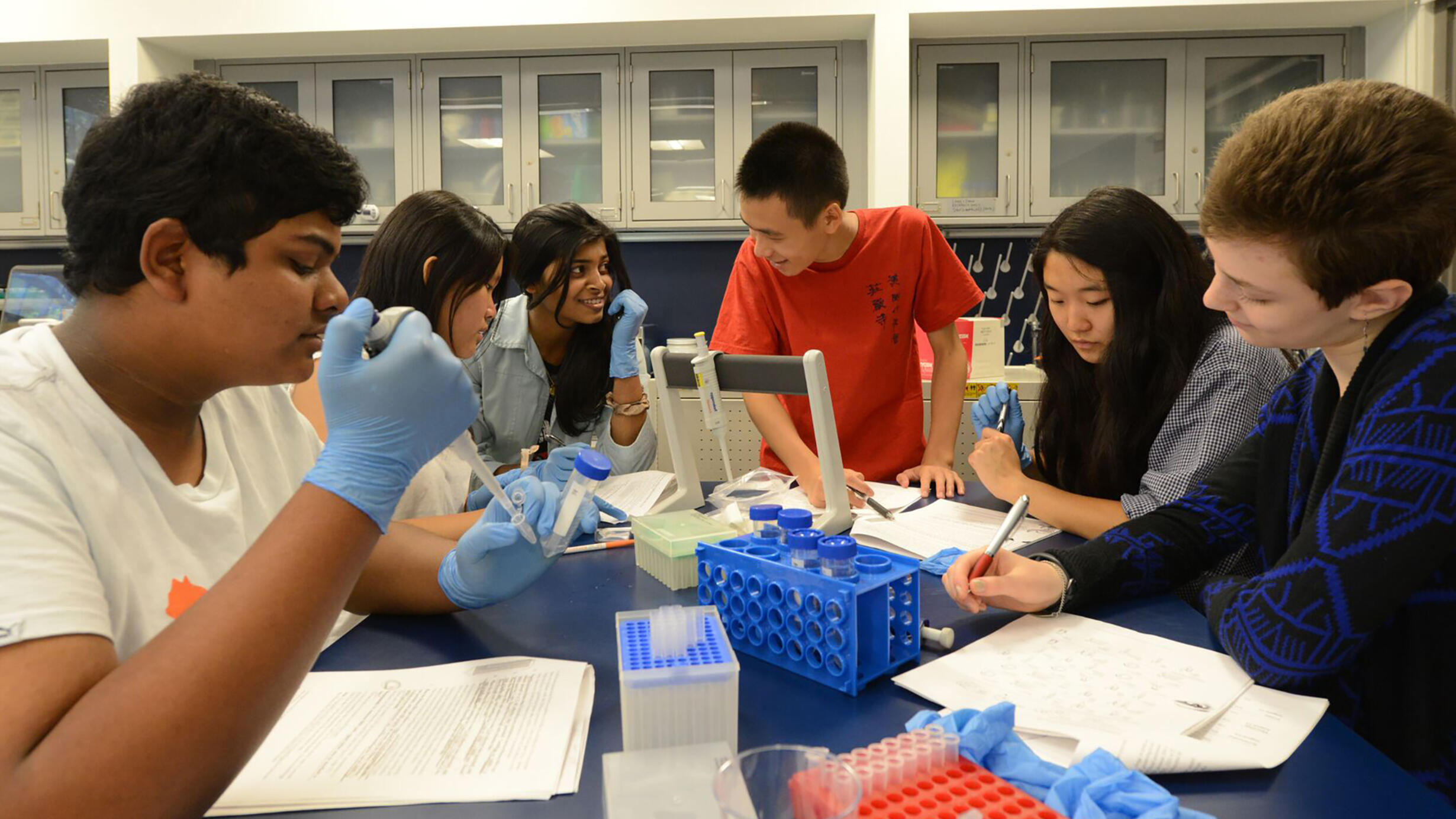Staying in Science: Investigating STEM Persistence and Career Pathways in NYC Youth

Staying in Science: 10 Year Longitudinal Study on Youth Pathways
The American Museum of Natural History is engaged in an NSF-funded, ten-year, longitudinal study titled Staying in Science. This study follows the academic and career pathways of NYC youth who have participated in more than 100 hours of research alongside scientists in a mentored science research internship program as part of the NYC Science Research Mentoring Consortium. Currently in year 6, the study began with youth aged 15–18 (NSF grant no. 1561637) and follows them into college and their early workplace experiences, and includes a NSF Rapid study examining the impact of the Covid-19 pandemic on youth college and career experiences. The longitudinal study includes 865 youth who participated since 2017; our longitudinal participant pool is a subset of 358 participants who are currently pursuing college degrees or have begun working. Through this research, we aim to understand the academic and career trajectories of these youth and their experiences pursuing their college and career goals.
- View our most recent report highlighting our preliminary findings from 2022.
- View our brief longitudinal research overview.
Staying in Science Research at AERA & NARST 2023
We will be presenting findings from our study at both the AERA and NARST 2023 conferences. Join us at the following sessions!
- Engaging Youth as Co-Researchers: Exploring Collaborative Methods Aimed at Foregrounding Youth Voices
- View our Co-Researcher AERA 2023 Poster.
- Revising the “Pipeline” in STEM Pathways Research: Alternatives That Reflect Systemic, Cultural, and Contextual Features
- Read our brief paper.
- Review our strategies for longitudinal studies.
- Pipeline Schmipeline: Exploring Youth Pathways in Science
Examining the Impact of the COVID-19 Pandemic on STEM-interested College Students
Our one-year NSF Rapid study explores the impact of the COVID-19 pandemic on our college student participants during the 2020-2021 academic year. This one-year mixed-methods study utilized student and faculty surveys, social network analysis and interviews to examine the impact of the pandemic on the academic pathways of 190 college youth.
78% of participants have declared a STEM major or are planning to major in STEM. At the close of our study, more than 85% of the students in our study reported that the pandemic had an impact on their academic experiences and trajectories.
Review our reports highlighting the key components of their experiences, including the challenges they faced attending college during the pandemic, and the important resources they sought to counteract the repercussions of the pandemic on their trajectories. Implications and recommendations for students, families, faculty, institutions of higher education, out-of-school-time program designers, and mentors are discussed.
Examining the Pathways of Underrepresented Youth in Mentored Research Study
Our longitudinal research study launched in 2017 with the aim of examining the experiences of NYC youth from backgrounds historically marginalized in STEM as they participated in an out-of-school (OST), science research mentoring program through the New York City Science Research Mentoring Consortium (NYCSRMC). The NYCSRMC is a partnership among 24 academic, research, and cultural institutions across NYC who share the goal of engaging youth in authentic STEM research experiences alongside scientists. The study examined relationships among and changes in youths’ participation in the communities of practice associated with sustained, mentored OST science research experiences; youths’ STEM social networks; and youths’ academic achievement, to identify variations in youths’ pathways and supports and outcomes related to persistence with STEM.
View our visual research brief on key findings from this study.
Our Research Team
Core Research Team
Pl: Preeti Gupta
Co-Pl: Karen Hammerness
Co-Pl: Rachel Chaffee
Co-Pl: Jennifer Adams
Lead Quantitative Research: Anna Macpherson
Lead Social Network Research: Alan Daly
Lead Social Network Research: Peter Bjorklund, Jr.
Alumni Co-Researchers
Mahmoud Abouelkheir
Lucie Lagodich
Coral Braverman
Lois Wu
Jahneal Francis
Priya-Syrina Li Hinton
NSF Advisory Board
Bianca Baldridge
Ruby Mendenhall
Daisy Duan
Noel Anderson
Edward Fergus